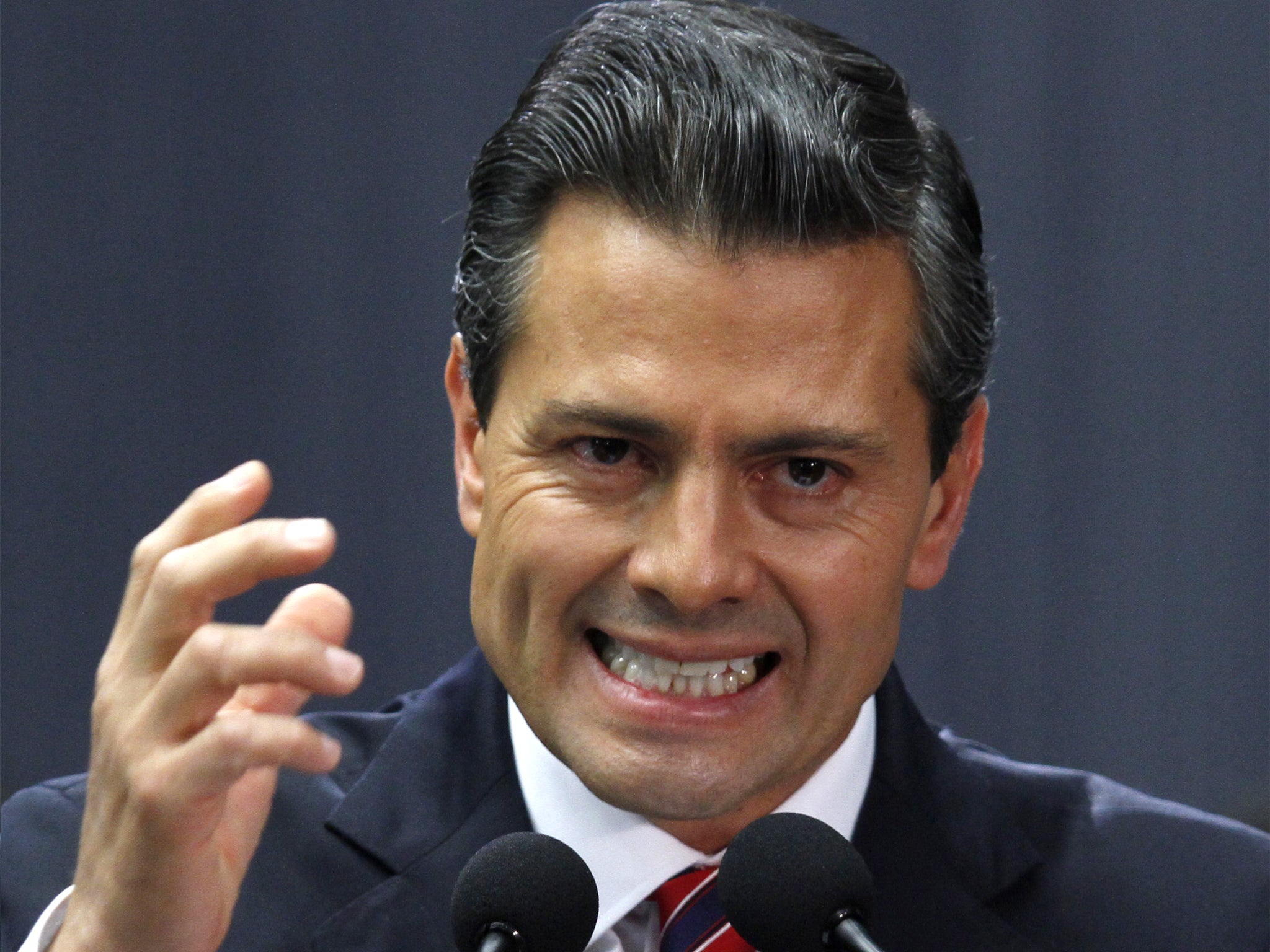Mexico lines up tax reform with leftist lean: President Enrique Peña Nieto raises income tax but not VAT in latest shake-up
Plan aims to broaden the abysmally low tax base and root out corruption in public spending

Your support helps us to tell the story
From reproductive rights to climate change to Big Tech, The Independent is on the ground when the story is developing. Whether it's investigating the financials of Elon Musk's pro-Trump PAC or producing our latest documentary, 'The A Word', which shines a light on the American women fighting for reproductive rights, we know how important it is to parse out the facts from the messaging.
At such a critical moment in US history, we need reporters on the ground. Your donation allows us to keep sending journalists to speak to both sides of the story.
The Independent is trusted by Americans across the entire political spectrum. And unlike many other quality news outlets, we choose not to lock Americans out of our reporting and analysis with paywalls. We believe quality journalism should be available to everyone, paid for by those who can afford it.
Your support makes all the difference.Mexico president Enrique Peña Nieto has unveiled a major shake-up of the country’s creaking tax system aimed at broadening the abysmally low tax base and rooting out widespread corruption in public spending.
The plan would raise the top tax band from 30 per cent to 32 per cent for those earning more than 500,000 pesos (£24,000) a year, and see a new levy on stock market profits as well as the scrapping of more than half the exemptions and breaks in Mexico’s fiscal code.
It has also defied widespread predictions by avoiding slapping VAT on food and medicines, which would have been one of the easiest ways to raise revenues.
That is partly because, despite being the world’s 14th economy – and home to the world’s richest man, telecoms tycoon Carlos Slim – roughly half of the 110 million population remain mired in poverty and would be seriously hurt by such a move.
But it may also be because Mr Peña Nieto’s Institutional Revolutionary Party, or PRI by its Spanish initials, lacks a congressional majority and will be relying on the left-wing Party of the Democratic Revolution, or PRD, to pass the reform.
That strategy appears to be working. Jesus Zambrano, the PRD leader described the proposal as a “triumph for the positions … championed by the PRD”, in particular the decision regarding VAT.
Measures intended to clean up Mexico’s public sector include centralising teachers’ pay and the healthcare systems’ purchasing of medicines by placing both directly in the hands of the federal government for the first time.
Mr Peña Nieto hopes the overhaul will increase state spending by £22bn per year, or three per cent of GDP, by 2018, and thus kick-start growth to around six per cent, after years of Mexico lagging behind many of its Latin American competitors.
Mexico’s current tax base, of 17.5 per cent of GDP, is the lowest in the Organisation for Economic Co-operaton and Development (OECD), a club of 34 of the world’s largest economies. Experts estimate that the black market makes up roughly half the national economy.
Yet although there is widespread agreement that a fiscal shake-up was urgently needed, there remains huge controversy over the recipe. Members of the third of Mexico’s three major political groupings, the conservative National Action Party, or PAN, were highly critical of the PRI plan, categorising it as an attack on the middle class.
One of the more pointed complaints was that the reform punishes those Mexicans who do pay income tax rather than going after the millions who deal only in cash and rarely or never pay income tax.
PAN leader Gustavo Madero also complained that the shake-up would trigger a fiscal deficit of 1.5 per cent of GDP for 2014. “In the PRI’s hands, debt has never worked out well. Deficit is a euphemism for debt,” he said. “Half this reform is financed with a deficit.”
Despite being forged in the 1910-1920 Mexican Revolution, the PRI swapped its leftist rhetoric for the free market during the 1980s and 1990s, including signing the North American Free Trade Agreement, or NAFTA, in 1992.
Yet Mr Peña Nieto, who was elected president in 2012, ending 12 years in the wilderness for the PRI, appears to be tacking, at least partially, leftwards again. One of the biggest challenges has been in redefining the PRI, which previously governed Mexico uninterrupted for seven decades, a period during which a handful of families came to dominate the economy.
Join our commenting forum
Join thought-provoking conversations, follow other Independent readers and see their replies
Comments